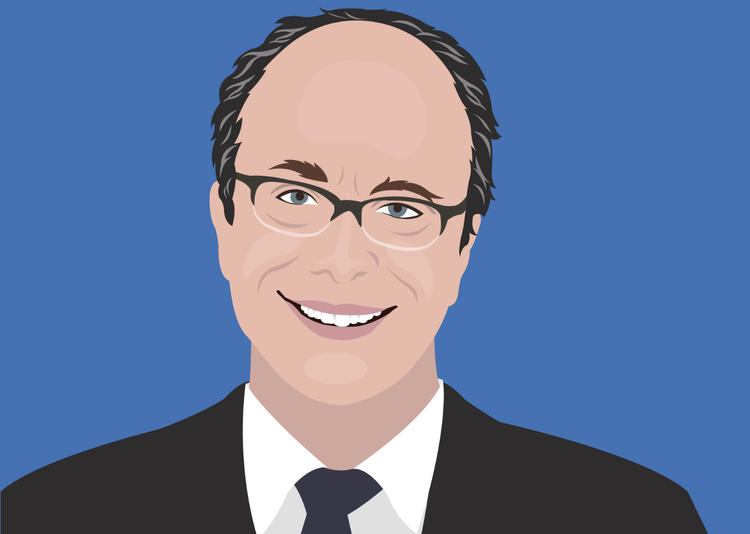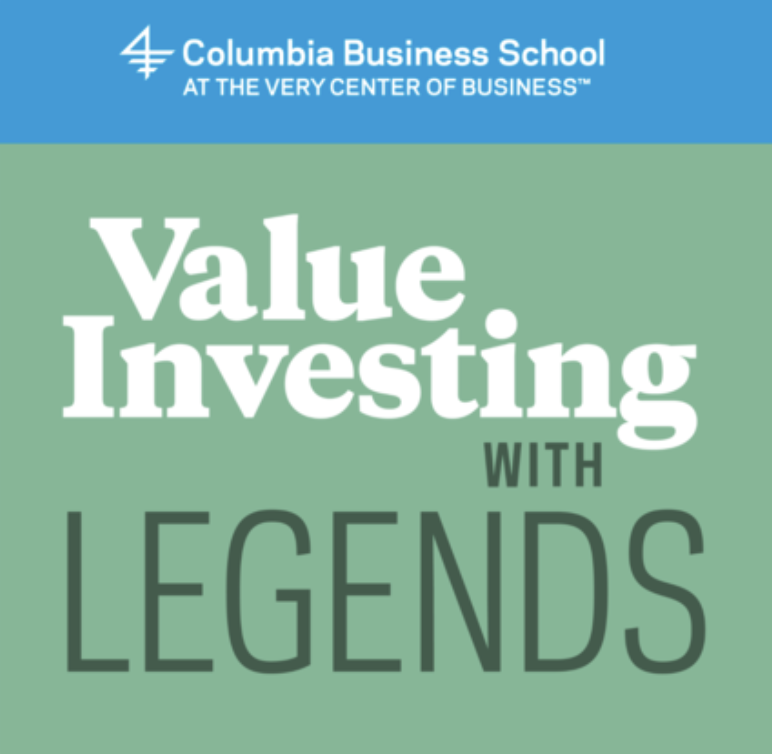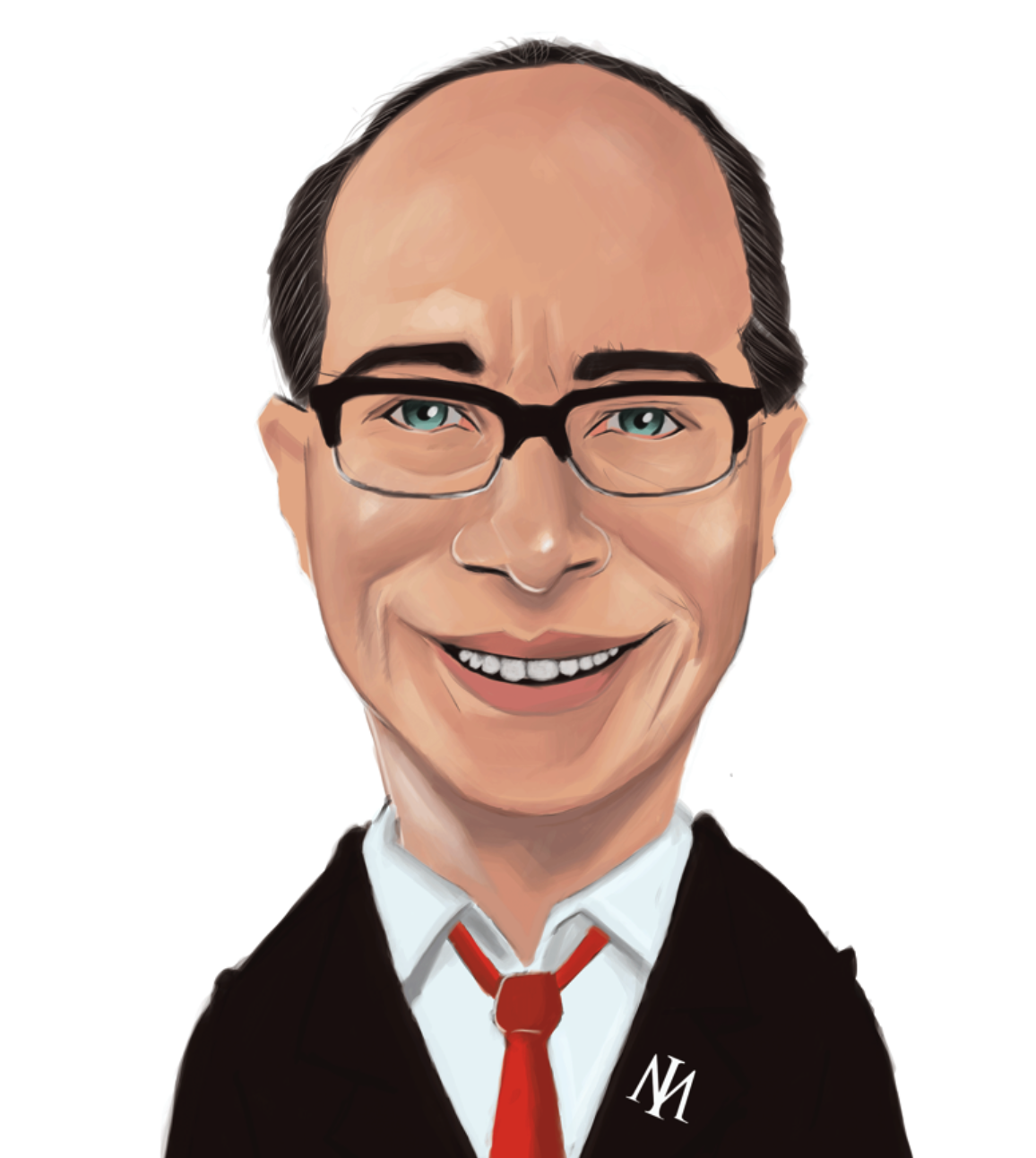What if I told you that there was a guy who has a degree in History, who, when he started his career in investing not only did not know the difference between a stock and a bond but also hadn’t a clue as to what they actually were, has worked in Risk Arbitrage with Seth Klarman and currently runs a fund that has over $9 billion under management. He’s generated consistent returns of at least 15% since the fund’s inception in 1999 and he’s also been labelled ‘The Wealth Machine’ by the Wall Street Journal. Do you know this investor?
His name is David Abrams.
It’s no surprise if you haven’t heard of David Abrams. He keeps a pretty low profile, so I was pleasantly surprised to see a recent interview with him on Columbia Business School’s ‘Value Investing with Legends’ Podcast series. I’ve included some of my favorite quotes below. You’ll notice many of them relate to topics that are common to the Investment Masters, but it was David’s commentary about the need for growth that particularly struck out at me: it’s no accident that Buffett has often stated his preference for businesses with growth:
"It’s pretty hard in a declining business to buy things cheap enough to compensate for the decline." Warren Buffett
Let’s start with that one…
The Need for Growth
“If we buy things with what we call a ‘hard catalyst’, an event that is going to close the gap between where we bought it and what it’s worth, we don’t need that much growth. We need to buy it cheap and get out. Where there is no catalyst, we absolutely need growth. The growth can come in all kinds of ways, it doesn't have to come through increased revenues, although a lot of times it does. It can come from running operations more efficiently, from acquisitions, or from buying back shares cheap. But if there is no catalyst, we absolutely need growth.”
Raising Money
“The best times to invest are the hardest times to raise money and the worst times to invest are when it’s easiest to raise money.”
Understand
“In all cases we do want to understand the fundamental economics because it’s easy to tell what has been, it’s easy to tell what is today, but as an investor we are always trying to deal with what’s going to be tomorrow, in two years or five years from today. To understand the dynamics of what’s going on has a lot to do with who has power in the relationship, what people’s alternatives are, what is the value to the customer or to the employees. So you try to understand that as opposed to just taking historical numbers and projecting them forward.”
Pricing Power
“We like to find businesses with pricing power. But to say that something has pricing power and to leave it there is really an incomplete line of thinking because nobody has unlimited pricing power.”
Think
“A lot of times the analysis [on companies] is as much just thinking it through. There are plenty of times when there is information and data you can get, but in the end you’re trying to form a judgement about something and I don’t think the judgements are going to be found on an excel spreadsheet. It is about thinking those things through as much as anything.”
Change
“You have to live with qualitative analysis. There’s uncertainty, there’s competition and I think what’s obvious to everyone, particularly in the last ten years, is that capitalism is very competitive and there is a lot of change. And there is change going on every day, all around us.”
Humility
“You always need to approach markets and business with a lot of humility, and as a generalist, even more so.”
People’s Thinking
“We are trying to determine what [other] people think, not by reading reports but really by understanding the economics of the business and by comparing it to the securities prices. And that will really tell you what people are really thinking.”
Consider Alternate Scenarios
“You’re trying to think about the multiple paths that could happen. There is not one path that can happen in the future. When you look back there is one path that happened but that doesn’t mean going forward there is only one path. In the future there’s multiple paths. You need to have the range about what that could be.”
Management Ownership
“We have a bias to liking companies where the management owns a lot of stock and has created value. The idea is fairly simple, people who have created value have a way of figuring out what will do more of it in the future. If you have a management team whose primary economics are coming through salary and bonus you can be at odds versus being a shareholder.”
Unknown
“The hard part about stocks is the future is unknowable. Is a five year track record the beginning or is the end. You won’t know that until you are in year ten.”
Stock List
“We have a list of things that we are always updating, adding and subtracting to it businesses we’d like to buy or people we’d like to invest it with. A lot of our research takes many years, sometimes more than a decade before we first look at something to buying it.”
Ideas
“I try to keep a lot of things coming into the intellectual funnel. I try to have a pretty good screen so I can sort through it. I invest in a wide range of things. Most of my money is invested in the fund. I put small amounts of money into VC funds that got me more in the flow of what’s going on in Silicon Valley. I travel and I try to expose myself to people thinking really differently. Sometimes it’s people with more positive or negative views of the world. Sometimes getting out around the world gives you a different perspective. Even within the US, travelling to different places gives you different perspectives.”
Position Sizes
“We try to put more money into the things that we have more conviction about. We’ll tend to top out stock positions at cost around six or seven percent. We can hold them if they go up but we tend to top them out around that cost. We look at industry concentration. We loosely keep an eye on it. We want to be fairly concentrated. I don’t target industry diversification, I keep an eye on it to make sure we are not getting too concentrated in a particular industry.”
Risk
“I’m not a huge fan of [hedging risk in positions with other instruments], I think sometimes the strategy can make people enter them with the idea they’re reducing risk but they actually maybe increasing risk. I always say, if we’re not comfortable with the risk the best and easiest way [to manage risk] is not taking that risk.”
Leverage
“We don’t use leverage in the portfolio. That is a basic philosophical decision on my part. I don’t want to have to meet a margin call at the wrong time. We try to study financial disasters and when you study all the people who had huge financial issues and you said ‘what was the reason they had those huge issues?’ Leverage was one reason that would probably capture 90% of all the disasters. In that sense, it seems fairly easy and straightforward to stay away from the one thing that causes most of the distress. Buffett said ‘If you’re smart you don’t need it and if you’re dumb you don’t want to use it.’ I think that captures the idea too.”
Win-Win
“Companies are responsible to all their constituents. If you don’t have a good product or good service you won’t have any customers. If you don’t treat you’re employees well, they are going to leave. If you don’t do all of that, you won’t make any money and you won’t attract any capital and you won’t have the investors. It’s not perfect, there are a lot of issues but it works pretty well. It’s better to let people, companies and individuals figure that out than mandating it like they do in Germany with works councils. There is not a lot of new business formations and innovation in Europe and there is a big reason for it. Our country has been a home for risk taking and innovation and if anything it’s picked up speed. But there are proposals out there that could dent that.”
Quant
“We do get closer to the companies and the people and I think it is certain the human relations and the human factor is not something a computer is ever going to dis-intermediate. I’m not overly concerned about quants. You don’t want to be Polyannish about it, or arrogant, nor in denial about these changes as they are really important. People have been looking for black boxes for investing since the day I got on Wall Street and well before. They will always look for it. The reason why its very unlikely to really happen is behind every pool of money there’s people. Whether endowments or foundations, the quants are interesting and shouldn't be ignored but they can only grow in popularity when they are working in the moment. If they haven’t produced good results in the short term people are going to throw them out.”
Summary
What I appreciate about David Abrams and the other Investment Masters is their willingness to teach and share their wisdom. With the plethora of podcasts, videos and investment newsletters that are available from the Investment Masters, it’s possible for all of us to learn new investment precepts from the best in the game. And once you have the new concepts, you can then apply enhanced investment skills to your own money management. I’ve always said I’d much rather learn from those with great long term track records and skin in the game and Abrams, whilst largely unknown, remains one of the best.
Source: ‘Value Investing With Legends Podcast’ with Tano Santos, Columbia Business School.
Join our Investing Community for daily insights on Twitter: @mastersinvest
TERMS OF USE: DISCLAIMER



